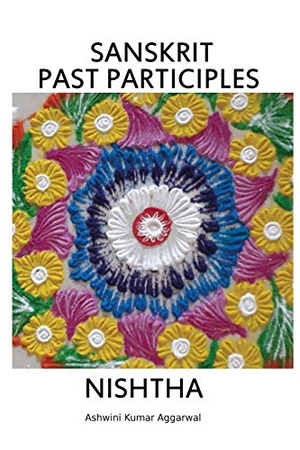
Ashwini Kumar Aggarwal
Sanskrit Past Participles Nishtha
- Devotees of Sri Sri Ravi Shankar Ashram
- 2020
- Taschenbuch
- 318 Seiten
- ISBN 9788194733867
Ni¿¿ha or Nishtha i.e. ¿¿¿¿¿¿ in Sanskrit Grammar is a kridanta word formed by adding a ¿¿¿¿ affix. These kr¿t affixes are ¿¿¿ and ¿¿¿¿¿¿ (kta , ktavatu ). Sanskrit Literature, especially the Bhagavad Gita and the Upanishads have frequent use of ¿¿¿¿¿¿ words, primarily as Participles used as Verbs. And that too the Past Participle Passive ¿¿¿ (kta) used in the sense of Past Tense, in place of the Verbs made using the ¿¿¿ affix. The beauty of using ¿¿¿¿¿¿ lies in the fact that the same ¿¿¿¿¿¿ Participial Verb can be used in first person, second person or third person with no change in
Mehr
Weniger
zzgl. Versand
in Kürze